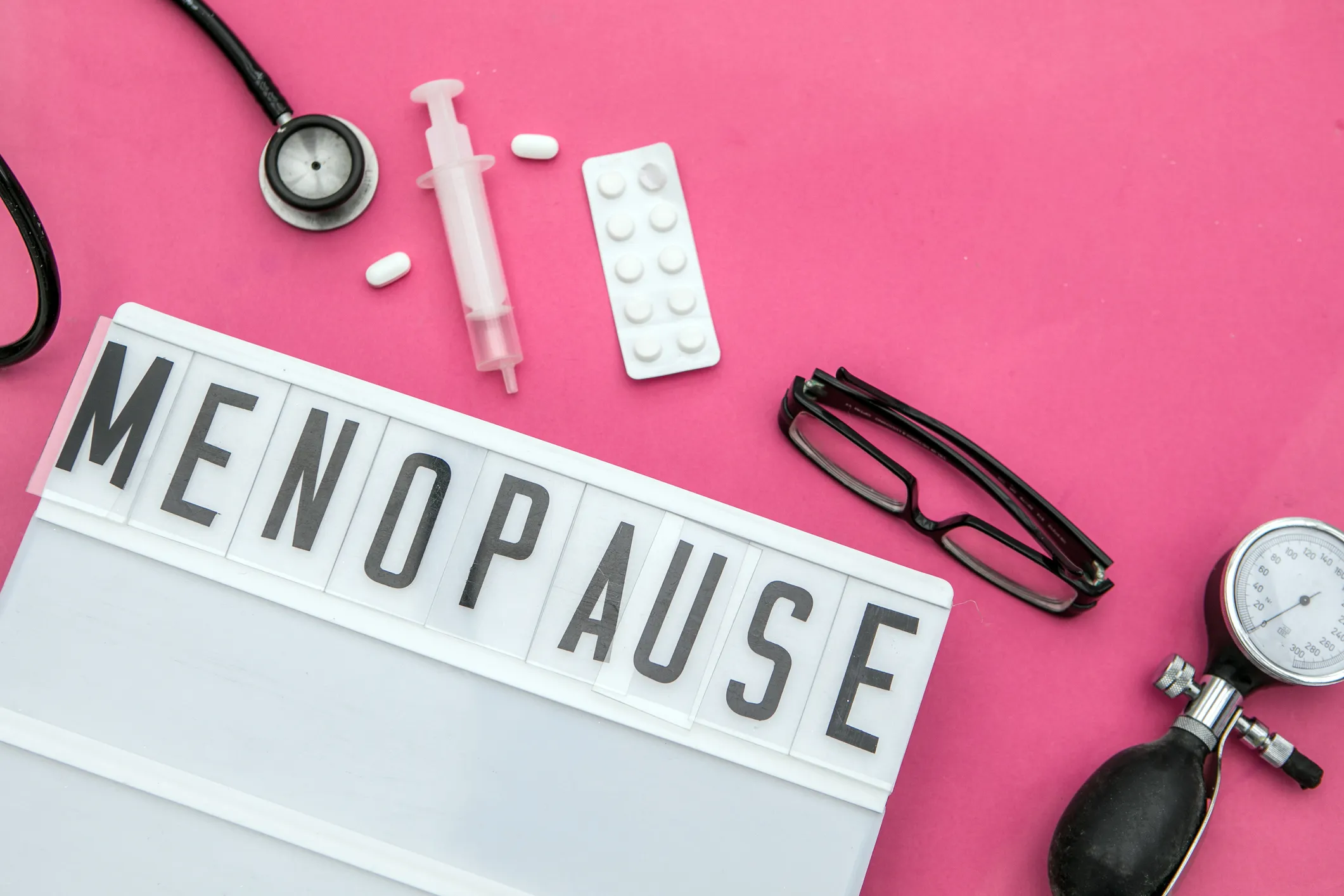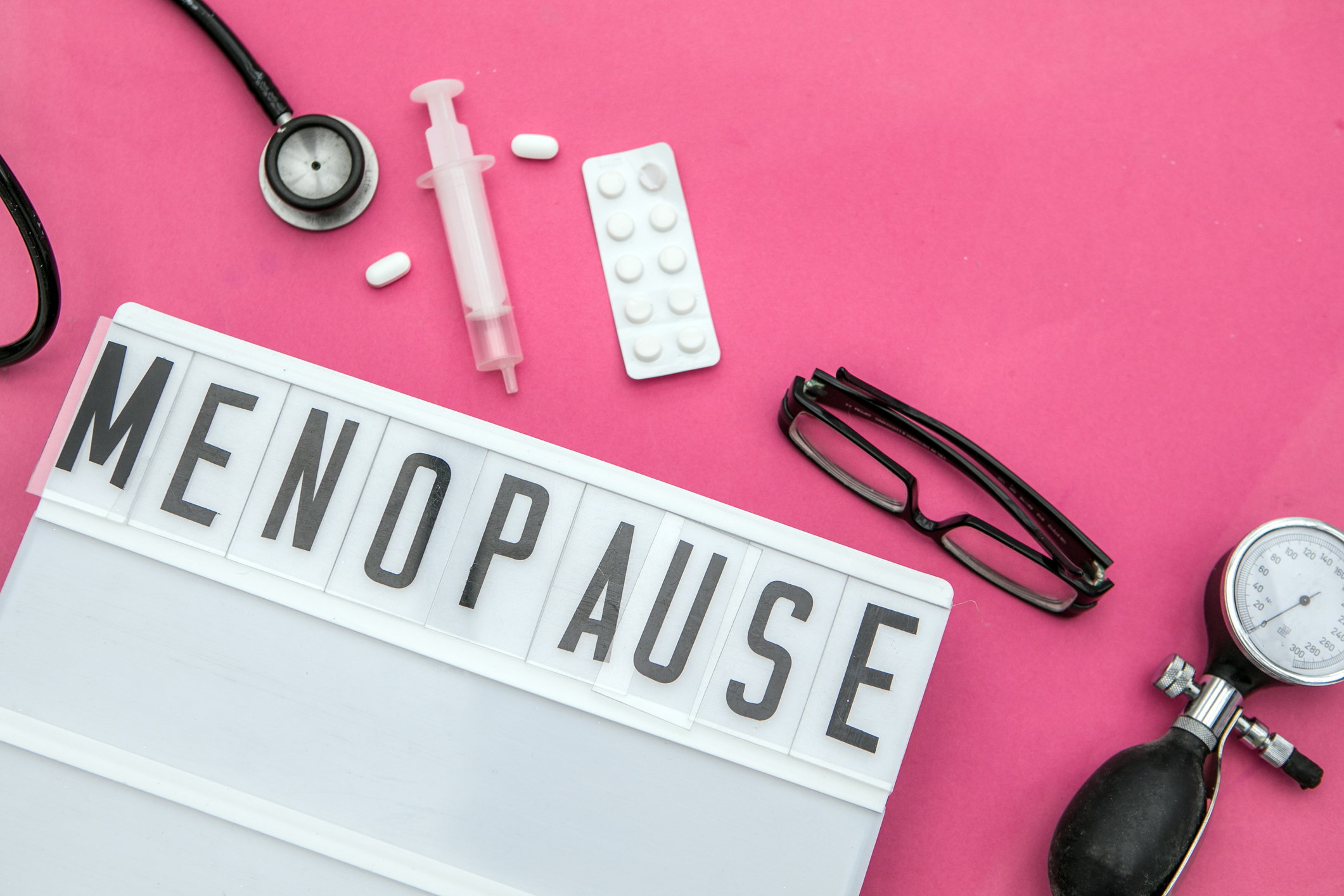Some women call it “the change”, “second puberty” or even “mother nature’s cruel joke” – whatever you want to call it, it’s menopause. Though it isn’t often openly discussed, you can learn more about menopause with a search online.
So why aren’t we talking about it? Probably because menopause comes with a number of symptoms that range from inconvenient to unpleasant. But the changes that come with menopause don’t have be so frustrating.
What is Menopause?
Every woman experiences menopause, which signifies the end of monthly menstrual cycles. It’s the end of your fertility and the start of entirely new changes within your body and hormones.
However, menopause is about so much more than just the end of a woman’s fertility. When menopause occurs, it causes a significant drop in hormone production. Since your body relies on hormones like estrogen and progesterone to regulate a number of functions including body temperature, metabolism, your reproductive organs, and even your brain, menopause is an overall health issue for women. And it brings a wide variety of symptoms and effects on a woman’s body, mind, and well-being.
While menopause is often talked about as one lengthy change, it’s much more complex. There are actually three menopausal stages in a woman’s life:
- Perimenopause, which starts when your uterus begins producing both eggs and hormones like estrogen and progesterone irregularly. This stage can last for 1 to 2 years.
- Menopause begins once it’s been a full year since you last menstruated. It’s when egg production stops completely, meaning you can no longer get pregnant.
- Post-menopause, which is the final stage. During post-menopause, most symptoms subside, but bodily functions are still affected by the loss of estrogen.
Menopause typically starts when a woman is in her 40s or 50s – but it can happen earlier due to genetics, autoimmune diseases, or environmental factors. In some cases, early menopause may be induced by chemotherapy or a hysterectomy, which may be necessary in order to treat various types of gynecological cancers.
The Symptoms of Menopause
Menopause comes with many, many symptoms – but only some are obvious.
When you reach your 40s or 50s, menopause can begin at any time. And while halted menstruation is likely the symptom you’re looking out for, you might actually miss earlier symptoms that come with perimenopause.
Overall, the symptoms of menopause vary greatly, due to the fact that there are estrogen receptors in nearly every organ and part of the body. Symptoms range from physical to mental, short-term to long-term, and can have quite an impact on a woman’s everyday life.
The following are some of the most common symptoms women experience in the different stages of menopause.
Hot Flashes
Hot flashes and night sweats are perhaps the most common symptom of menopause. They’re experienced by nearly 80 percent of women who go through it.
Hot flashes are characterized by a flushed face, overwhelming heat, chills, and a rapid heartbeat. They occur when your ever-changing hormonal balance confuses the hypothalamus area of your brain, which controls the body’s temperature. Your body wrongly believes it’s over-heating and your natural cooling system kicks in, dilating your blood vessels and releasing excess heat in the form of a hot flash.
Mood Swings and Depression
If you’ve ever experienced PMS, you understand the link between moods and hormones. Women who were particularly sensitive to PMS in their youth or who suffered pregnancy mood swings and/or postpartum depression may be in for an especially bumpy ride during menopause.
Estrogen plays a large role in your brain’s production of serotonin, which is a mood-regulating neurotransmitter. When your serotonin is low it leaves you feeling off, sad, or irritated. And as your estrogen levels drop, you might experience mood swings or persistent sadness.
This is why menopause can cause depression in women. In fact, studies have shown that perimenopausal women are twice as likely to be depressed as pre-menopausal women – and that the longer your transition takes, the more prone to it you’ll be.
Fatigue
Low physical and mental energy is a common side effect of menopause, particularly in the early stages when your body is first adjusting to your fluctuating hormone levels. Many women report experiencing high levels of physical fatigue as well as mental fogginess, memory problems, confusion, and a lack of focus.
Another contributing factor of mental and physical tiredness is the lack of sleep that can happen due to insomnia and hot flashes. Altogether, this can create a vicious circle of exhaustion that can feel impossible to break.
Lower Sex Drive and Painful Intercourse
Just when you no longer have to worry about getting pregnant, sex becomes a little more difficult for many menopausal women. Lower hormone levels typically make for a lower sex drive. While it’s normal for your libido to slow as you age, middle-aged women are two to three times more likely than men to suffer from a lower sex drive due to menopause.
Fewer hormones also mean that your brain, where sexual desire originates, cannot effectively communicate the need for increased moisture and blood flow to your reproductive organs. And this can result in vaginal dryness. It’s perhaps the most uncomfortable symptom to experience (and discuss). Aside from painful intercourse, it can also lead to yeast infections and urinary tract infections.
Weight Gain
Studies have found that lower estrogen levels during menopause typically result in weight gain for two reasons: not only do changing hormones cause fat cells to store more fat, but they also burn fat off slower, making it more difficult to lose.
While both men and women tend to gain weight during the aging process, women in particular experience a change in weight distribution, which is linked to estrogen. During our younger years, women tend to carry weight in the hips and thighs to better accommodate pregnancy. But as you move into menopause, weight tends to shift to your abdomen, which is linked to health complications like cancer, heart disease, and diabetes.
Ways to Cope with Menopause Symptoms
Menopause certainly comes with plenty of symptoms – and living with those symptoms and significant changes can make daily life challenging.
However, you don’t have to stay frustrated, unhappy, or emotionally struggling during your menopausal years. There are ways you can treat or try to cope with some of the worst symptoms. The following are some of the most common options.
Hormone Replacement Therapy
A direct way to combat the symptoms of lower hormone levels is through hormone replacement therapy (HRT). This symptom treatment option involves being given a dose of hormones, like estrogen or progesterone, through an injection, a patch, a gel or a pill.
Much like hormonal birth control, HRT does come with an increased risk of blood clots in the legs and lungs and studies have found that long-term use of HRT is linked to a higher risk of breast cancer.
However, experts agree that hormone therapy is safe if done for five years or less. Before starting HRT, it’s recommended that you consult your doctor to see if the treatment is right for you.
Find – and Avoid – Your Triggers
While many of the symptoms of menopause are unavoidable, some women find that certain foods, substances, or activities trigger and worsen their symptoms. When you start to experience the signs of menopause, it’s a good idea to keep a diary to help you track your triggers.
You may find that spicy foods, caffeine, alcohol, or smoking triggers hot flashes and night sweats. By identifying triggers like these that make you feel worse, you can better manage your symptoms and lessen the impact they have on your day-to-day life. You can start cutting those activities or choices that aren’t helping your symptoms or making them worse out of your life.
Help Out Your Libido
There’s no reason you have to give up on sex just because you’re experiencing a lowered libido or painful intercourse. Instead, you can help your sex drive by using aphrodisiac herbs like gingko biloba, engaging in more foreplay, using lubricants, doing kegel exercises, or even seeing a sex therapist.
Menopause should be a time for worry-free sex, and with a little extra effort your can overcome the sexual side effects that Mother Nature has thrown at you.
Birth Control
It sounds pretty strange to take birth control when you’re going through menopause. After all, isn’t one of the few perks of menopause the fact that you no longer have to worry about getting pregnant or taking birth control?
But birth control can actually be used to regulate your hormones, which are all over the map during menopause. Birth control is often prescribed to menopausal women to relieve hot flashes, night sweats, and irregular periods. Be sure to consult your doctor to see if it’s the right treatment for you.
Exercise Regularly
Even just a little exercise can go a long way in relieving a number of menopausal symptoms. Light activities like walking, Pilates, yoga, swimming, or low-impact sports can not only help you maintain your weight, but can also help you sleep better, strengthen your bones, fight off mood swings, and even ease hot flashes.
Keep Your Mind Sharp to Fight Mental Fatigue
Push through the mental fatigue and brain fog that comes with menopause by exercising your brain along with your body. By doing crossword puzzles, taking a class, learning a new language or instrument or taking up a new hobby, you can keep your mind sharp and your hands busy to distract yourself from your symptoms.
After all, menopause isn’t the end of your life – it’s simply a new stage of it with new challenges and opportunities to face.
 Carol Yepes / Getty Images
Carol Yepes / Getty Images